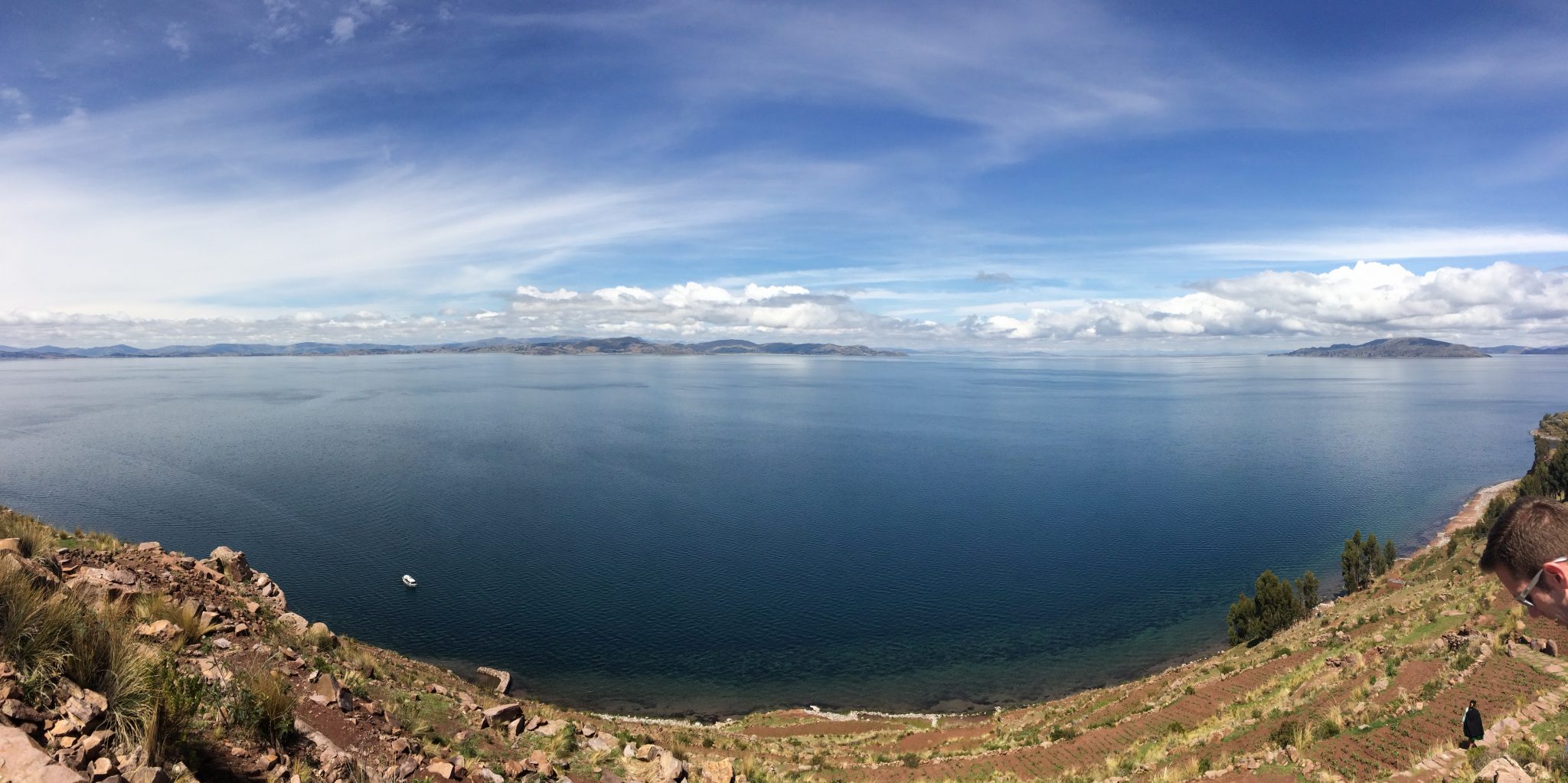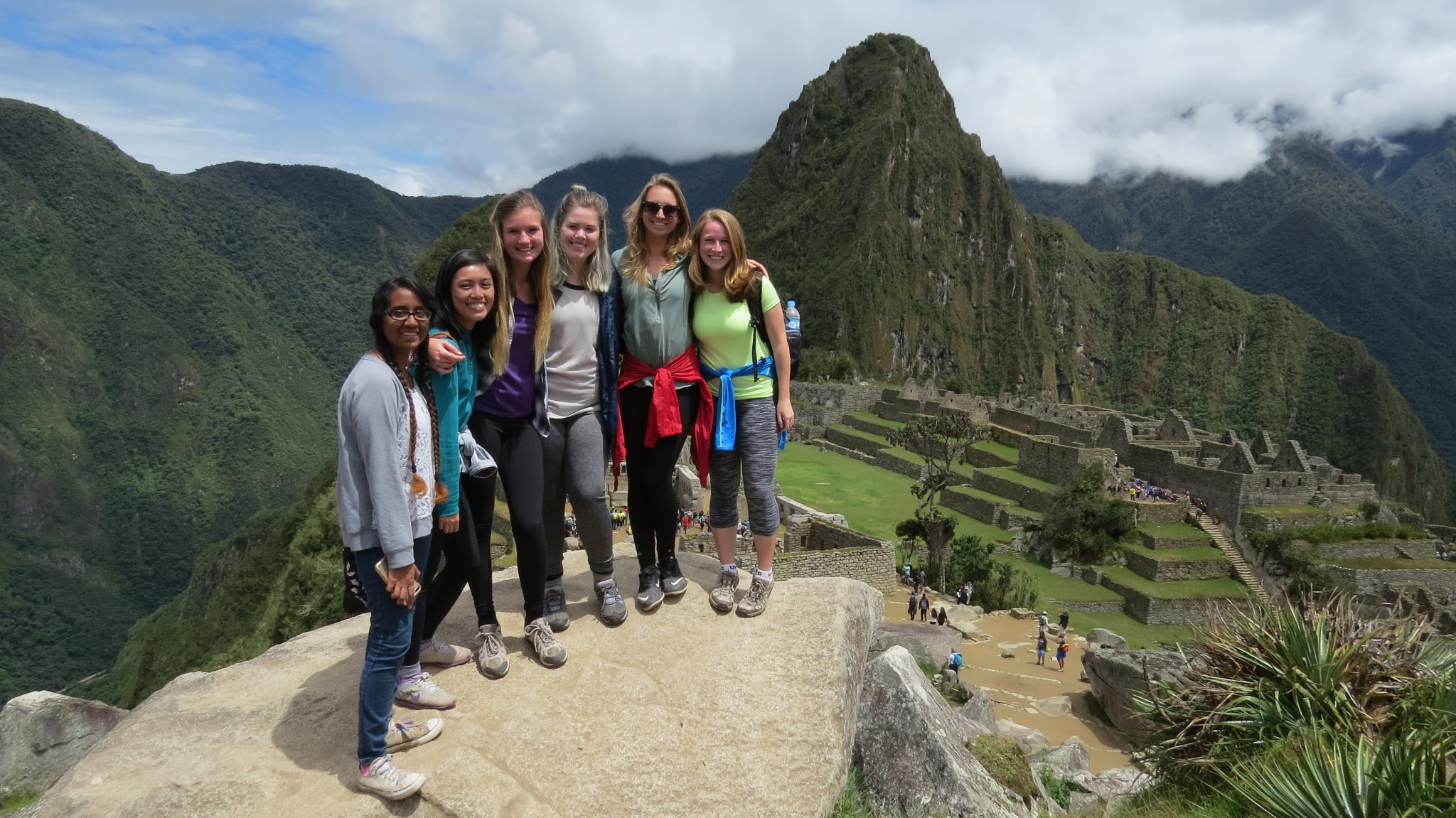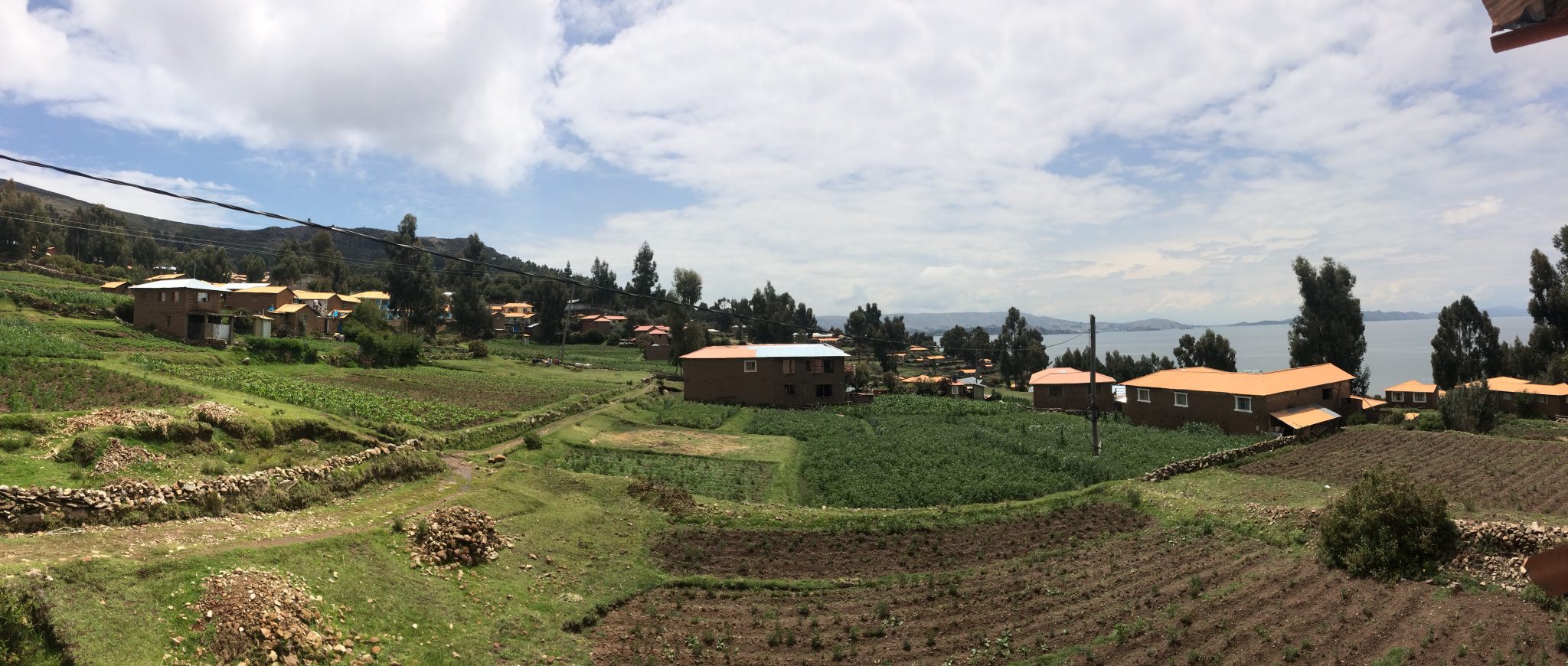Honors psychology/pre-med major Katie Gerth researched and presented on tourism’s impact on Peru, and learned some unexpected lessons on that subject while visiting the islands of Taquile and Amantaní.
As our Honors Passport trip to Peru comes to a close, I am so thankful for the opportunity to come here and learn about the people and spaces that we have been seeing, and enhancing my knowledge of these things after a semester of preparation during the third semester of H2P. I got closer with my colleagues and professors and got to learn about a culture that I otherwise really would not have known much about. However, I was expecting these things. What I was not expecting was how much of an obstacle the language barrier would be and how difficult this would be for me to deal with personally.
I have been abroad several times before, to other places that do not speak English as a first language. However, they are quick to jump to English when communicating with you and because of these experiences I was expecting this for the majority of Peru. I was very wrong. Many people know a handful of English words, but unless they are involved in the tourist industry they cannot carry on a conversation in it. Many times, our professor Dr. Austin had to translate for people which was surprising to me. I was very excited to come to Peru and go beyond the typical tourist mold and really interact with the people and learn about them. However, my Spanish knowledge was very minimal. Although I took 3 years of it in middle school and high school, I found myself struggling to communicate with the locals, even ordering food and understanding what the waiter said was sometimes a struggle.
These small interactions were not the only thing affected by the language barrier. When we went to the islands of Amantaní and Taquile, I was really looking forward to talking to the inhabitants and learning about their customs and daily life, especially because I did my research on them. However, it was very difficult to communicate with them, and because of tourism, they are used to limited interaction with tourists anyway, leaving that to the guide. Many of our experiences there were created by our guide and all I wanted was just to communicate with the locals to truly understand their lives, to get a more authentic experience. Not knowing Spanish was frustrating to deal with at times – I am usually a very talkative person but being nervous and just not knowing how to translate my thoughts or understand what others were saying sometimes kept me from trying to start a conversation, resulting in a less meaningful experience.

Views from the top of Taquile Island
Despite all of this though, I think this obstacle had taught me a couple of things:
- The first was that it is impossible to learn a language in a day but that should not stop you from trying to use the little you do know, learn from others around you, and ask questions (I asked “come se dice” a lot since it was usually only one or two words keeping me from answering someone or asking a question).
- The second thing I learned was that as tourists, we often adopt a mindset that everything should be tailored to us. I have learned that not only does this alter authenticity, as locals will enhance or leave out things in order to make an experience more enjoyable, but also that I shouldn’t be expecting everything to be catered to me. In order to make the most out of an international experience I think that it requires more of a give and take; for example, you should come more prepared to speak their language, understand their traditions, and know the history a little more. After all, we are guests in these peoples’ nation and the least we can do is reach out to them a little and make things easier for them as they are often trying to make things easier and more enjoyable for us.

Katie (far right) and other Honors Passport students at Machu Picchu.
This trip has not only encouraged me to become more fluent in other languages but has also given me new perspectives on tourism and international travel. With this in mind I will strive to be more conscious of diversity and actively try to interact with the environment, instead of imposing my expectations on a group of people or experience and waiting for them to serve me.


